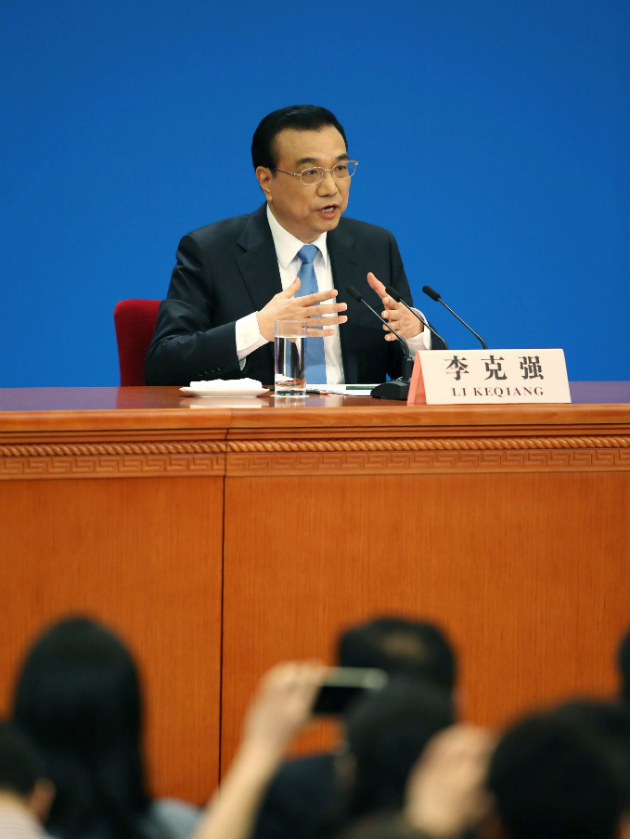 The role of navigating negative lists in China’s market
The role of navigating negative lists in China’s market
Grasping how the use of ‘negative lists’ is shaping governance shifts is key to successfully navigating new business opportunities in China. The regulatory environment has changed slowly since the 2013 Third Plenum declaration of a more open and inviting investment atmosphere, but has sped up notably in 2017. Now more than ever, knowing all the facts and status of reform can make an immense difference to business operations. Philippa Jones and Erlend Ek from China Policy help to untangle China’s changing trade policy and clarify how China’s new regulations are supporting its bid to become a champion of globalised trade.
Despite years of declining foreign business confidence, investment from overseas, China’s leaders are rediscovering, is critical to becoming an advanced global manufacturer. Foreign investment brings with it needed technology, know-how, capital and competition, and it underpins two-way trade. With aspirations for both a more efficient and sustainable growth model and to trade at the higher end of the global supply chain, the leadership now wants it known that China is a top foreign investment destination. In signalling a renewed commitment to market opening, China seeks to make good on its new ‘champion of free trade’ mantra and to reduce friction over Chinese enterprises ‘going global’.
Changing the model
China has struggled to convince potential bilateral investment treaty (BIT) partner states and investors of its bona fides. Its highly anticipated BITs with the United States (US) and the European Union are still on hold.
Stepping up the rhetoric, President Xi Jinping reiterated on 17th July 2017, that China must “create a stable, fair, transparent and predictable business environment” for the “sustainable and healthy development of the Chinese economy”.[1] President Xi’s priorities include faster framing of laws and regulations, streamlining existing rules, and retooling intellectual property rights laws. With the 19th Party Congress looming, President Xi’s call signalled that some needed shifts are on the way.
Adopting a negative list model
In July 2013, Beijing agreed to a negative list model as the basis for US-China trade negotiations.[2] If a sector is not on the list, foreign investment will be treated on equal terms to domestic capital. In the past, foreign investment was only allowed if approved by the central government – a ‘positive list.’ There was also clear separation between domestic and foreign investment, often allowing foreign investment preferential treatment on some policies, and favouring domestic investment in others. This new approach gives local governments clearer rules and holds them accountable. By no longer needing central government approval to bring in foreign investment in sectors they wish to advance, they gain flexibility. However, while this is a step in the right direction, critical rules must also be changed in order to reduce investment discrimination. Aiming to use negative lists to attract BITs partners and to drive domestic reforms, the State Council of the People’s Republic of China (State Council) started piloting the negative list model in free trade zones (FTZs). The Third Plenum of the 18th Communist Party of China Central Committee’s (2013 Third Plenum) called for a “unified, open and fair market system”, pledging that the market should play a more “decisive role”.[3] The negative list model is the centrepiece of this pledge.
Three lists
Premier Li Keqiang has declared that such a model would be part of a comprehensive reform.[4] A negative list, he said, would serve as one component of a new initiative comprising three complementary ‘lists’ that require the state to become less opaque and forego discretionary approval of foreign and domestic investment.
The ‘three lists’ are:
1. A negative list defining areas considered off-limits; all items not on the list are deemed permissible. The negative list makes it clear where investors cannot develop business.
2. A list of powers that clarify the government’s authority. Areas not found on this list will be deemed outside government authority. This aims to reduce the abuse of government power and deter rent-seeking behaviour.
3. A list of state responsibilities that explains how China’s market will be regulated. All services outlined on the list fall under the purview of government agencies. All items on the list must be undertaken by the government; it cannot shirk its responsibilities.
Accelerating reform in 2017
The negative list solution to foreign investment bottlenecks is now, after an initially slow start, being fast-tracked. The start of June 2017 saw a number of announcements in quick succession which included: an updated negative list for FTZs, a negative list included in the 2017 Catalogue for the Guidance of Foreign Investment Industries, and a marked change in China trade policy with the inclusion of a negative list in the recent Mainland and Hong Kong Closer Economic Partnership Arrangement (CEPA), the first trade agreement to include such a list. The State Council has issued two guidance documents in 2017, another sign of acceleration.
Despite this show of resolve, the actual implementation of these lists remain unclear. Conflicting rules across jurisdictions and agencies now need to be consolidated and streamlined. In their 2015 negative list policy blueprint, the State Council stated that more consolidated lists will be issued starting in 2018, based on experience gleaned from FTZ pilots.[5] Agencies and FTZs refer to two different types of lists as negative lists: general, non-legally binding lists for both domestic and foreign investors (used to consolidate information, primarily from various agencies’ rules), and specific lists for foreign investors (like those announced in June 2017). Even when considering these two types, there are contradictions and disagreements and their relation to other existing rules remain unclear.
Awaiting reforms
Making good on Premier Li’s ‘three lists’ proposal is a work in progress. Much improvement is still needed.
The current four foreign investment-related laws were amended in 2016. In the past, foreign investors needed to go through a lengthy permit application process that required both operational permits and business licences. Only after receiving a permit could investors establish a company and obtain a business licence. In line with what was stated at the 2013 Third Plenum, the amendments changed the process from this complex pre-setup review and approval system, to post-setup supervision. In the Chinese Academy of Social Sciences’ (CASS) latest report on this issue, CASS Institute of International Law fellow, Huang Jin, stresses, however, that legislative support is still either missing or unclear, stymying development of a new negative list model.[6] Mr Huang stresses that Beijing needs to ‘bite the bullet’, by either more strictly supervising the process or by taking a ‘softer’ approach.
Legal and regulatory conflict
Existing rules still clash with the negative list model. In FTZs, foreign industries may still fail to pass specific project-based operational restrictions, even though they are formally entitled to establish a business. It is hard to gain legal recourse in these cases, as no dispute resolution mechanism has emerged in the negative list pilots. Calls for some sort of mechanism are growing. Achieving that goal, however, would require changes to the Organic Law of the People’s Courts of the People’s Republic of China and the Organic Law of the People’s Procuratorates of the People’s Republic of China. Public comment is currently being sought on these amendments after they were reviewed at the National People’s Congress (NPC) in August 2017. While Shanghai’s trial and procuratorial organs have established corresponding institutions in the FTZs, professor at the KoGuan Law School of Shanghai Jiao Tong University, Gao Quanxi, points out that these corresponding institutions cannot exercise any judicial power to deal with investment and trade disputes without first amending those two laws.[7] To resolve these issues, Prof. Gao recommends the NPC pass a unified FTZ law and the Supreme People’s Court establish an independent judicial system in the FTZs.
Absent legal and regulatory clarity, localities are hard pressed to implement these recent changes. The State Council had instructed ministries, departments and local governments on 16th August 2017 to draft implementation schedules. The appointed agency to take the lead on this rollout will be the Ministry of Commerce of the People’s Republic of China (MOFCOM). The MOFCOM is also concurrently being kept busy drafting a new foreign investment law. How this law will pertain to the 1993 Company Law of the People’s Republic of China (revised 2013), which is now only applicable to domestic firms, remains at the centre of debate. Implementation guidelines for reviewing foreign investment under the 2015 National Security Law of the People’s Republic of China, have also yet to be formulated.
A work in progress
The core of the negative list model is the legal principle which states that something is ‘permitted unless prohibited’. However as, professor at Fudan University, Gong Baihua notes, when the negative list is cited by courts it tends to cause more debate than agreement.[8] Deemed applicable to the realm of private rights only, i.e. not to public authority, this ‘permitted’ principle applies to citizens and legal persons unless explicitly stated otherwise. To make this principle workable, existing administrative rules must be reconfigured.
Premier Li’s second and third lists (that pertain to state powers and obligations) represent continued efforts in opening up the economy. At the end of 2016, a National Supervision Commission was foreshadowed. This new body is slated to be formalised by the NPC in March 2018, in tandem with a new supervision law. The plan’s purpose is to set up a supervisory organ parallel to the State Council which is independent from government agencies, to take a supervisory role over the agencies, according to Ma Huide, the vice-president at the China University of Politics and Law.[9] In addition to external supervision from the NPC, the adapted National Supervision Law will guarantee that the Commission will hold public officials accountable to two mandates that appear to limit the state’s public authority in line with Premier Li’s lists. These two mandates are the following:
1. The state must carry out all statutory functions and duties stipulated by law.
2. Nothing unauthorised by law may be undertaken by the state.
This portends a fundamental shift in governance. However, what is proposed and what is delivered is separated by a space occupied by the Communist Party of China, which rarely forsakes its strategic ambiguity and hence arbitrary intervention is never off the table. The increased ‘use of law’ to safeguard both domestic and foreign investment is still far from ‘rule of law’ protection. However, the move to reduce arbitrary state power, often exercised at the local level, is a positive development for foreign investment.
Philippa Jones is the managing director and Erlend Ek is the trade and agriculture research manager at China Policy. China Policy is a research and strategic advisory based in Beijing. Working with clients at leadership, executive, and research levels, they deliver clear insight into China’s policy world as it affects strategic and operational decision-making in China and around the world.


Recent Comments